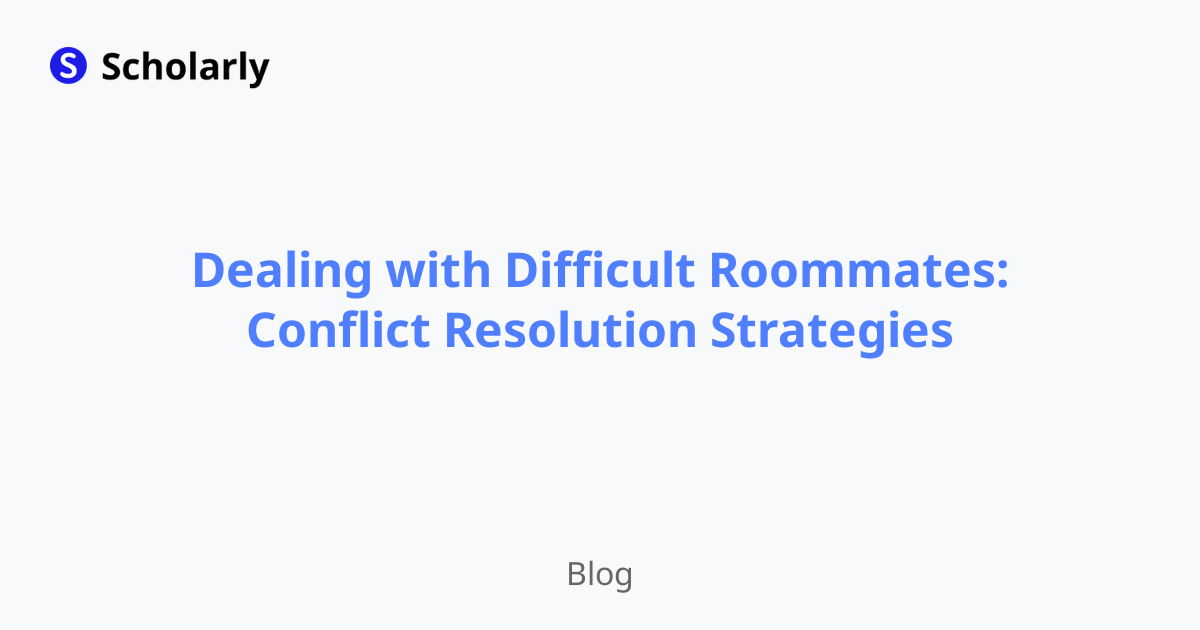Dealing with Difficult Roommates: Conflict Resolution Strategies
Navigate roommate conflicts with practical communication strategies and conflict resolution techniques that preserve relationships and living situations.

Introduction
Roommate conflicts are among the most common stressors in college life, affecting sleep, study habits, and overall well-being. Whether dealing with cleanliness issues, noise problems, or personality clashes, effective conflict resolution skills can transform tense living situations into positive experiences while building valuable life skills.
Methods
1. Preventive Communication
Establish Ground Rules Early:
- Discuss expectations for cleanliness, noise, guests, and shared spaces
- Create written agreements about chores and responsibilities
- Set boundaries around personal belongings and space
- Agree on communication preferences for addressing issues
2. Addressing Problems Directly
The Conversation Framework:
- Choose appropriate timing when both parties are calm
- Use "I" statements to express how behaviors affect you
- Focus on specific behaviors rather than personality traits
- Listen actively to understand their perspective
Example: "I feel stressed when dishes pile up in the sink because it makes it hard for me to cook. Could we work out a system for keeping the kitchen clean?"
3. Mediation and Escalation
When Direct Communication Fails:
- Request mediation through residence life staff
- Document ongoing issues with dates and specifics
- Explore room change options if necessary
- Involve RAs or housing administrators for serious conflicts
Benefits
- Improved Living Environment: Resolved conflicts create more peaceful living spaces
- Life Skills Development: Conflict resolution abilities transfer to relationships and career
- Stress Reduction: Addressing issues early prevents escalation and ongoing tension
- Preserved Relationships: Many roommate conflicts can be resolved while maintaining friendship
Challenges
- Avoidance Tendencies: Many people avoid confrontation, allowing problems to worsen
- Personality Differences: Fundamental lifestyle differences may be incompatible
- Power Dynamics: Unequal social or financial status can complicate resolution
- Timing Issues: Academic stress can make conflict resolution more difficult
Conclusion
Most roommate conflicts stem from miscommunication and unmet expectations rather than fundamental incompatibility. Approach conflicts with empathy, clear communication, and willingness to compromise. The skills you develop resolving roommate issues will serve you throughout your personal and professional life.




